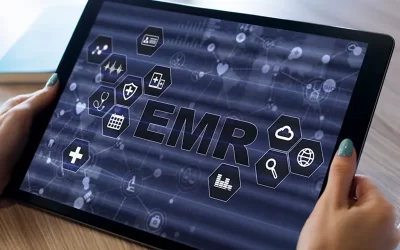The entire global population is going through extremely trying times with total and partial lock downs and numerous other restrictions put in place to control the raging COVID-19 epidemic. Recognizing the need of the hour and to ensure patients easy access to medical treatments, the CMS (Centers for Medicare & Medicaid Services) has announced Section 1135 waivers to support the government’s efforts to battle COVID-19. Indeed, in situations such as the present one, making emergency medical treatment available to those affected is most important. In normal circumstances, health insurers may utilize processes such as medical peer review to determine coverage eligibility for their plan members. However, in extremely hazardous and emergency situations such as this, all are focused on providing the required facilities and care to patients.
What Is the 1135 Waiver?
Under section 1135 of the Social Security Act, the HHS secretary may temporarily waive or modify certain Medicare, Medicaid, and Children’s Health Insurance Program (CHIP) requirements to make sure that adequate healthcare items and services are available to meet the requirements of individuals enrolled in social security programs in the emergency area and time periods and also that providers who provide services in good faith are reimbursed and exempted from sanctions, if there is no fraud or abuse involved. Some examples of 1135 waivers are for:
- Program participation and similar requirements.
- Pre-approval requirements.
- Conditions of participation/other certification requirements.
- Conditions that physicians/other healthcare professionals must be licensed in the State wherein they are providing the services, provided that they have equivalent licensing in another state. This waiver is for Medicare, Medicaid, and CHIP reimbursement purposes only. State law governs whether a non-federal provider is authorized to provide services in the particular state without state licensure.
- Performance deadlines and timetables may be adjusted, but not waived.
- Stark self-referral sanctions.
- Limitations regarding payment to permit Medicare enrollees to use out of network providers in an emergency situation.
- EMTALA (Emergency Medical Treatment and Labor Act) sanctions for redirection of a person to obtain a medical screening examination in another location following a state emergency preparedness plan (if it is a public health emergency involving pandemic infectious disease, a state pandemic preparedness plan) or transfer of a person who has not been stabilized if the transfer is necessitated by the circumstances of the emergency declared. EMTALA requirements waiver is effective only if the actions under the waiver do not discriminate on the basis of a patient’s source of payment or ability to pay.
Waivers under section 1135 end no later than the termination of the emergency period, or 60 days from the date the waiver or modification is first published, provided the Secretary of HHS doesn’t extend the waiver by notice for additional time up to 60 days, up to the end of the emergency period.
- EMTALA waivers (for public health emergencies that do not involve a pandemic disease) and waivers for HIPAA requirements are limited to a 72-hour period starting from the implementation of a hospital disaster protocol.
- Waivers for EMTALA for public health emergencies involving a pandemic disease last until the termination of the pandemic-related public health emergency.
- The 1135 waiver authority is applicable only to federal requirements and does not apply to state requirements for licensure or conditions of participation.
CMS Waivers Associated with COVID-19 Pandemic
- Critical Access Hospitals: CMS is waiving the requirements that these hospitals limit the number of beds to 25, and that the length of stay be limited to 96 hours.
- Housing Acute Care Patients in Excluded Distinct Part Units: CMS is waiving requirements to enable acute care hospitals to accommodate acute care inpatients in excluded distinct part units, where the distinct part unit’s beds are suitable for acute care inpatient. The IPPS (Inpatient Prospective Payment System) hospital should bill for the care and explain in the patient’s medical record that the patient is an acute care inpatient being housed in the excluded unit because of capacity concerns related to the emergency.
- DME (Durable Medical Equipment): If Durable Medical Equipment Prosthetics, Orthotics, and Supplies (DMEPOS) is lost, destroyed, irreparably damaged, or otherwise becomes unusable, contractors are allowed the flexibility to waive replacement requirements so that the face-to-face requirement, a new physician’s order, and new medical necessity documentation are not required. However, suppliers must include a narrative description on the claim stating the reason why the equipment has to be replaced. They must maintain documentation to indicate that the DMEPOS was lost, destroyed, irreparably damaged, or otherwise rendered unusable or unavailable consequent to the emergency.
- Skilled Nursing Facilities (SNF): CMS is waiving Social Security Act’s Section 1812 (f) requirement for a 3-day prior hospitalization for coverage of a SNF stay to provide temporary emergency coverage of SNF services without a qualifying hospital stay, for people who may have to be transferred as a result of the effect of an emergency or disaster. Also, for certain beneficiaries who recently exhausted their SNF benefits, this waiver authorizes renewed SNF coverage without first having to start a new benefit period. Another important point to note is that CMS is waiving 42 CFR 483.20 to provide relief to SNFs on the time limit requirements for Minimum Data Set assessments and transmissions.
- Supporting care for patients in LTCH (Long-term Care Acute Hospitals): The waiver would allow LTCHs to exclude patient stays where the hospital admits or discharges patients so as to meet the demands of the emergency, from the 25-day average length of stay requirement. This allows these facilities to be paid as LTCHs.
- Care for Excluded Inpatient Psychiatric Unit Patients in the Acute Care Unit of a Hospital: Acute care hospitals will be allowed excluded distinct part inpatient psychiatric units that need to relocate inpatients from the excluded distinct part psychiatric unit to an acute care bed and unit, consequent to the emergency situation. The hospital is required to bill for inpatient psychiatric services under the inpatient Psychiatric Facility Prospective Payment System for such patients. A note should be made in the medical record to indicate the patient is a psychiatric inpatient being cared for in an acute care bed because of capacity or other urgent circumstances related to the emergency. This waiver can be used where the hospital’s acute care beds are appropriate for psychiatric patients, and the staff as well as environment is conducive to safe care. For psychiatric patients, this includes assessment of the unit location and acute care bed to make sure that those patients who are at risk of harm to self and others are safely cared for.
- Care for Excluded Inpatient Rehabilitation Unit Patients in the Acute Care Unit of a Hospital: The waiver regarding this would allow acute care hospitals with distinct part inpatient rehabilitation units that need to relocate inpatients from the excluded distinct part rehabilitation unit to an acute care bed and unit, as a result of the emergency situation. For such patients, the hospital should continue to bill for inpatient rehabilitation services under the inpatient rehabilitation facility prospective payment system. A note should be made in the medical record to signify that the patient is a rehabilitation inpatient being cared for in an acute care bed because of capacity or other exigent circumstances related to the emergency. A hospital can utilize this waiver where their acute care beds are appropriate for providing care to rehabilitation patients and such patients continue to receive intensive rehabilitation services.
- Home Health Agencies: The waiver provides relief to Home Health Agencies on the timeframes related to OASIS (Outcome and Assessment Information Set) Transmission. It allows Medicare Administrative Contractors to extend the auto-cancellation date of Requests for Anticipated Payment (RAP) during emergencies.
- Provider Locations: The requirements that out-of-state providers be licensed in the state where they are providing services when they are licensed in another state are waived temporarily. This applies to Medicare as well as Medicaid.
- Provider Enrollment: A toll-free hotline will be established for non-certified Part B suppliers, physicians, and non-physician practitioners to enroll and receive temporary Medicare billing privileges. Screening requirements including Application Fee, Criminal background checks associated with FCBC (Fingerprint-based Criminal Background Check), and Site Visits are waived. All revalidation actions will be postponed; Licensed providers will be allowed to render services outside of their state of enrollment. Any new applications from providers will be expedited.
- Medicare Appeals in Fee for Service, MA and Part D
- Extension to file an appeal
- Waive timeliness for requests for additional information to adjudicate the appeal
- Process the appeal even with incomplete Appointment of Representation forms but communicating only to the beneficiary
- Process appeal requests that don’t meet the required elements using information that is available
- Utilize all flexibilities allowed in the appeal process as if good cause requirements are satisfied
CMS doesn’t require states to use any specific form or format to submit a request for a Section 1135 waiver. States must clearly state the scope of the issue and the impact it has made. The request can be made directly to Jackie Glaze, CMS Acting Director, Medicaid $ CHIP Operations Group Center for Medicaid & CHIP Services. Requests can be sent as email ([email protected]) or letter.
As a chart review company serving social security and insurance lawyers, we know how crucial it is for private as well as government payers to rise to the occasion and lighten the financial burden on patients who have fallen victim to COVID-19.




